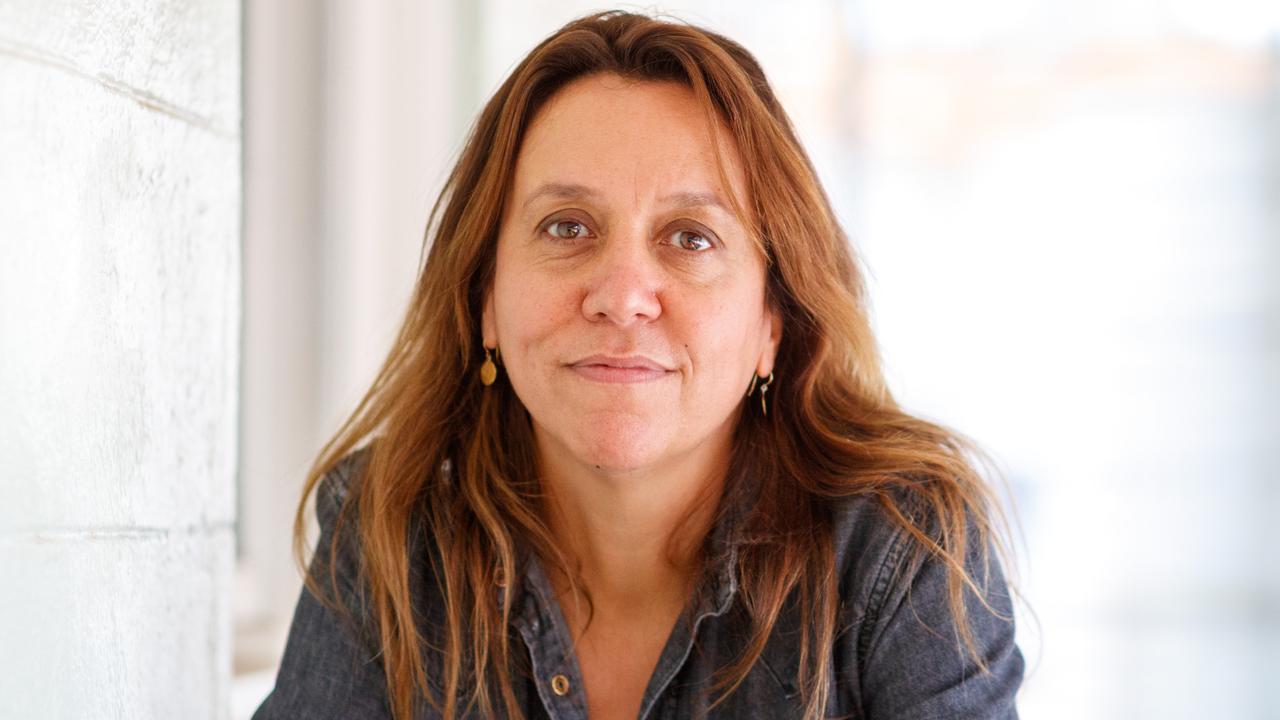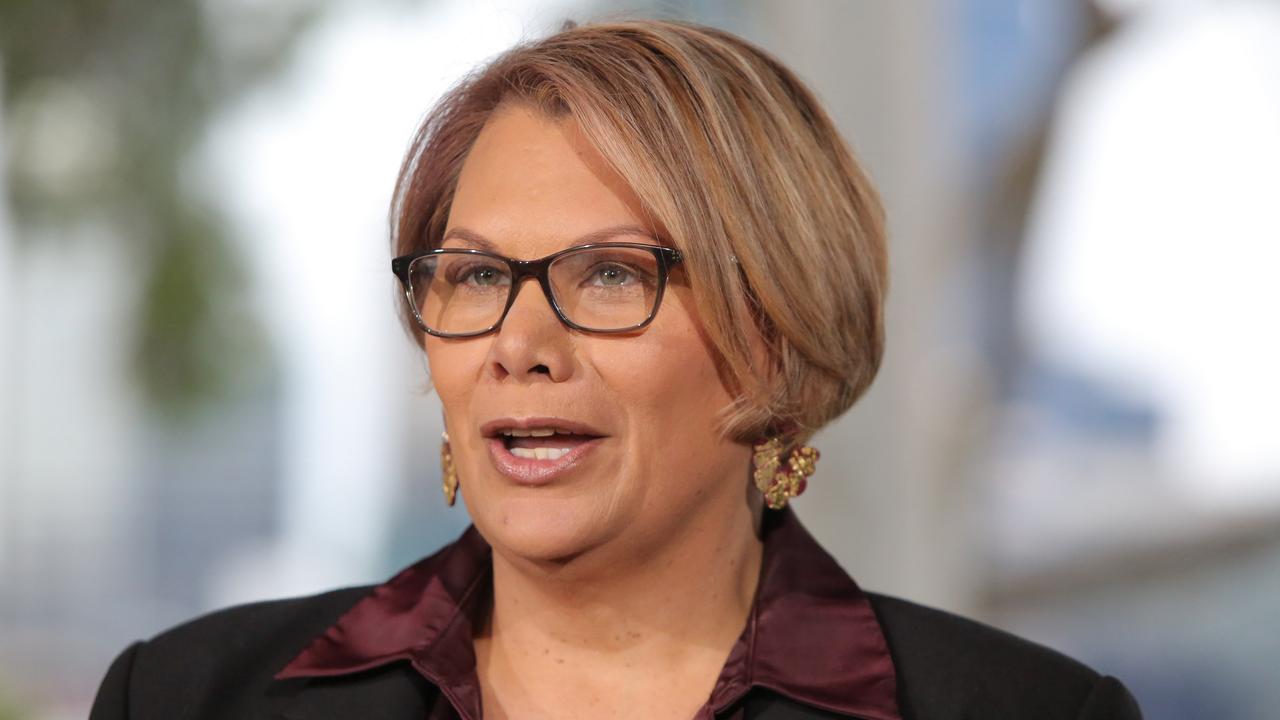Time for eviction notice for ‘in the room’ elders, says Indigenous leader Pat Anderson
One of Australia’s best-known elders, Pat Anderson, says there is ‘a succession problem’ in the Indigenous movement.

One of Australia’s best-known elders, Pat Anderson, says time is up for the select Indigenous Australians who have been “in the room” with governments for decades.
“The same people have spoken for mob, both in transparent and non-transparent ways, and have been the designated drivers of various policy agendas for 30, 40 years,” Ms Anderson said.
“When are these people, who have been in charge for decades, going to step aside and make room for the next generation?”
Ms Anderson, a veteran advocate for the rights of Aboriginal and Torres Strait Islander children, argues there is “a succession problem” in the Indigenous movement. Ms Anderson, 80, helped create Uluru Youth in 2018 and has mentored its leaders. She advocated for new, younger voices in her keynote address to the annual conference of the Australian Institute of Aboriginal and Torres Strait Islander Studies in Darwin on Wednesday.
“Elders must step back – without disappearing. We must leave the next generation not only our stories, but also our strategies. Succession is not retirement. It is renewal,” Ms Anderson said.
During her speech to the conference – one of the biggest gatherings of Indigenous leaders since the defeat of the voice referendum in 2023 – she argued it was important for Indigenous people to test and critique each others’ ideas. She said it was unhelpful when Indigenous people labelled constructive criticism from other Indigenous people as “lateral violence”, a term sometimes used to describe bullying.
“I think we need to disavow ourselves of that as a community and find a way to have good, open conversations,” she said.
“If you receive public money because you are publicly claiming to speak for mob then you must be open to accountability.”
She claimed, for many Indigenous Australians, social media was the only place to thrash out ideas.“Some say we should ask those questions and have those disagreements quietly and behind the scenes, away from the eyes of non-Indigenous Australians,” Ms Anderson said. “But that’s a little self-serving, because there are no forums for that. We have no other forum.
“For the ‘in the room’ privileged few to suggest the many mobs left out of peak meetings, out of sector frameworks, out of policy rooms to ‘hush’ criticism is beyond the pale. Social media has become the forum of complaint. Because it’s the only one left.”
Ms Anderson expressed doubt about the Albanese government’s Indigenous economic empowerment agenda as a means to reduce Indigenous disadvantage.
“Immediately after the referendum, the Labor government continued the status quo: the Closing the Gap framework, now dressed up with a new ‘economic empowerment’ agenda, aimed at wealth creation, they say. But opaque in substance and delivery, known only to the exclusive few the government now consults,” she said. “These initiatives continue to use the disadvantage of our people as justification for redistributing taxpayer money to institutions like Indigenous Business Australia. I’ve been doing this for a long time, which means I have the privilege of being frank. What I see is a failure of imagination and of leadership in the Indigenous policy space.”
After Ms Anderson’s delivered her speech, Indigenous Business Australia deputy chief executive Sean Armistead told The Australian that 22,000 Indigenous people had become homeowners over the past 50 years with the help of IBA loans.
“Our latest impact report shows that our customers experience higher financial wellbeing compared to the broader Aboriginal and Torres Strait Islander population,” he said. Under the decade-long Closing the Gap agreement signed in 2020, all Australian governments are committed to working with the Coalition of Peaks – an alliance of Indigenous entities representing service providers including those in the health and medical fields.
However, Ms Anderson – co-chair of the Uluru Dialogue – has claimed the government is simply consulting its own contractors.
On Wednesday, Ms Anderson said: “We must ask: Who is leading these debates and conversations? Who is influencing governments and bureaucracies on the matters that shape our lives? Who is in the room?
“The concern many of our people have is that the people in the room have no connection or accountability to the people they are speaking for.
“We need to answer these questions to understand the current moment, because there is no doubt in my mind that this moment is one of the lowest points for Indigenous policy ever. “
A Coalition of Peaks spokesperson said it represented 800 community-controlled organisations across a range of service sectors. “It’s hardly an exclusive club and has worked hard to keep communities informed of developments and how to use the national agreement to improve relationships with all governments,” the spokesperson said. “Many other initiatives in Aboriginal and Torres Strait Islander affairs have been led by a variety of leaders. It’s the responsibility of governments to close the gap and ensure we take our rightful place in our own country.”
Ms Anderson said the principle of elected representation was foundational, “yet we’ve drifted far from it”.
“A democratically elected voice would allow every Aboriginal and Torres Strait Islander person to exercise agency. To choose who speaks for them. That’s the foundation of belonging. It’s so critical. It’s also how you close the gap,” she said. “People engage more in community and national life when they feel like they have skin in the game. Right now, many of our people do not feel that they have that. I am not saying we don’t need policy experts. We absolutely do. But we also need grassroots expertise.
“We need leaders in communities who are often ignored – who know what will actually work and what will actually bring change. For them, it’s not a theoretical exercise. They’re living the issues, and they can help.”




To join the conversation, please log in. Don't have an account? Register
Join the conversation, you are commenting as Logout